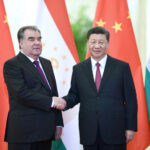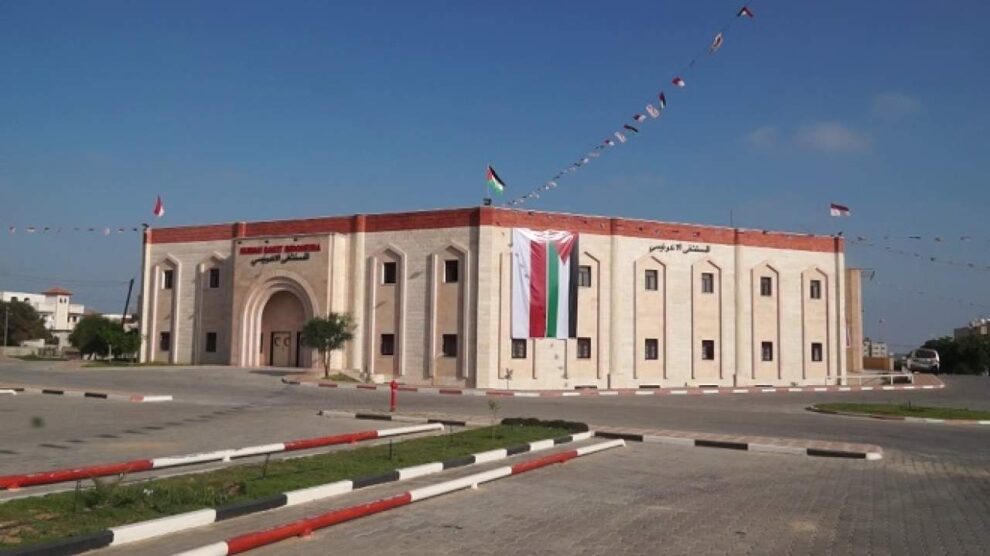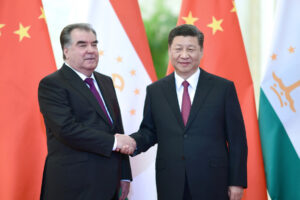There are always mixed feelings between pride, sadness, anxiety and frustration when international news agencies, such as Reuters and AFP, and television networks, such as the BBC and Al-Jazeera, mention the privately funded Indonesian Hospital in the Gaza Strip because the Israeli military has continued bombarding the hospital and other medical institutions as part of its scorched-earth tactic to obliterate Hamas at any cost.
Since the fight between Israeli armed forces and Palestinian militant group Hamas broke out on Oct. 7, the Indonesian Hospital has been flooded with more patients than it can handle. “Patients are being treated on the floor,” Medical Emergency Rescue Committee (MER-C) presidium chairman Henry Hidayatullah told The Jakarta Post on Wednesday.
“We’re trying, but without electricity, we won’t be able to help them. Their conditions will worsen,” said Henry. No less than three Indonesian health workers refused the Foreign Ministry’s offer to evacuate them from Gaza. They said they would stay with the patients as long as they were needed.
The hospital has won international applause for its tireless humanitarian work. We are proud of the dedication of the Indonesian workers who built the health facility several years ago and provide medical services. Although the hospital is now practically ruined by the Israeli bombardments, all medical workers there, who are mainly Palestinians, vow to stay with the patients until the very last minute.
But there is a deep sense of frustration to see the government rarely express a token of appreciation to Indonesian nationals who work for the hospital. If not mistaken, the government’s lack of appreciation has been there since then vice president Jusuf Kalla inaugurated the hospital in January 2016.
The government seems reluctant to recognize the concrete and long-standing contribution of the non-governmental organization MER-C.
Built just outside of Gaza’s largest refugee camp in Jabalia, the Indonesia Hospital reportedly has served thousands of Palestinians who were injured in the Israelis’ onslaught in retaliation to the surprise attack by Hamas on Oct. 7, which took over 1,200 lives. Hamas has also held more than 200 people hostage following the incursion.
MER-C funded the hospital construction using a crowdfunding system in Indonesia. It claims the funding is purely collected from the private sector, including ordinary Indonesians.
The hospital construction started in 2011 and finished five years later. Kalla inaugurated the US$9 million hospital on Jan. 9, 2016. Back then it treated more than 250 patients every day. Kalla described the hospital as the “symbol of cooperation” between Indonesia and Palestine.
Gaza authorities granted 16,000-meter square of land for the hospital and pay the monthly salary of about 400 Palestinians who work in the medical center. A few Indonesians have been volunteering in the hospital.
According to its website, the hospital aims to deliver medical assistance to victims of war, natural disasters and other extraordinary events, regardless of religion, nationality or socioeconomic class. To date, MER-C has launched missions at home in Indonesia and abroad in Afghanistan, Iraq, Iran, Lebanon, Kashmir, Palestine, the Philippines, Sudan, Thailand and Myanmar. Its members are unpaid volunteers.
Many Indonesians have expressed hope that President Joko “Jokowi” Widodo and Foreign Minister Retno LP Marsudi would acknowledge the significant contribution of the social organization in helping the Palestinians, for instance, by naming MER-C in their public remarks, or inviting the organization’s executives for a luncheon.
Is the government’s reluctance because MER-C is not a supporter of the government or because the group disagrees with the President’s policies?
President Jokowi and his foreign minister displayed a “look down” attitude when the President announced plans to send the first batch of aid to Gaza and reiterated Indonesia’s unconditional support for Palestine’s independence last weekend.
The government said it would also convey the contribution of humanitarian organizations at home to Gaza. However, it was not stated clearly, as if the private sector was just an addition, while the facts show that the private sector has proven its commitment to the Palestinian people for years.
According to the Post, Jokowi explained that the aid was a result of a collaboration involving the government, private sector and society. He also condemned the deteriorating humanitarian situation in Palestine, urging a cease-fire in the region.
Meanwhile, Retno stated on Wednesday she had talked with various parties, including Palestine’s Foreign Minister Riyad al-Maliki and MER-C volunteers. “From our communications, we have information that the time left is approximately 48 hours from this morning. We talked before the main generator shut down,” Retno told reporters.
Realize it or not, by announcing the plan to send humanitarian assistance to the Palestinians, Jokowi and Retno intended to steal the show from the Indonesian Hospital in Gaza.
No less ridiculous is a claim that the initiative to dispatch the aid to Gaza came from the Defense Ministry or, more precisely, Defense Minister Prabowo Subianto. According to a high-ranking ministry official, the decision was made after Deputy Defense Minister M Herindra and Deputy Foreign Minister Pahala Mansyuri discussed the matter.
In fact, the aid came the Foreign Ministry, the Health Ministry, the Red Cross of Indonesia (PMI), alms collection and zakat organizations.
The PMI raised a total of Rp 2.9 billion ($185,387) in donations from the public, and it was spent on gas cylinders and power generators. The Humanitarian Forum Indonesia also collected donations of goods and money from the public.
The PMI raised a total of Rp 2.9 billion ($185,387) in donations from the public, and it was spent on gas cylinders and power generators. The Humanitarian Forum Indonesia also collected donations of goods and money from the public.
In the meantime, the National Alms Agency (Baznas) has collected Rp 1. 7 billion, which was used to procure medicines and clothes. A military transporter will deliver the donations.
President Jokowi has consistently supported Palestine’s independence from Israel’s colonialization and vowed not to open any diplomatic ties with Israel until an independent state of Palestine is formed under the two-state solution. All the six Indonesian presidents before Jokowi also adopted rigid and unwavering support for the establishment of a free Palestine.
However, such a diplomatic option has cost Indonesia a chance to play a mediatory role in solving Israel-Palestine conflict. Jakarta cannot act as an honest broker due to its persistent support for Palestine. Indonesia has rejected lucrative offers, which were combined with pressure and even threats, from the US to open diplomatic ties with Israel.
Source: The Jakarta Post















